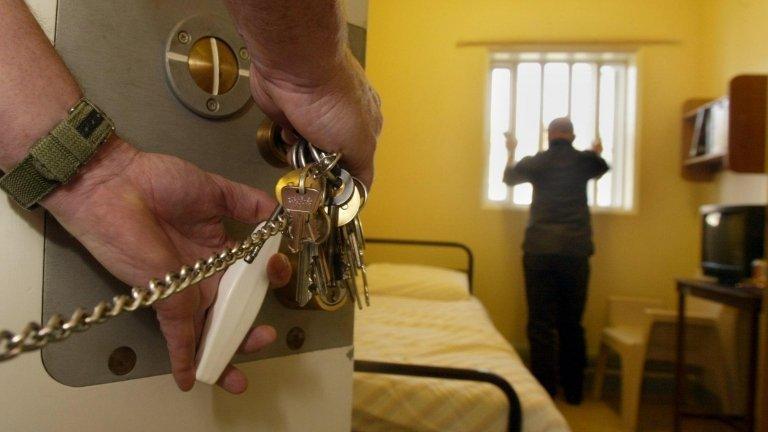'Concern' over more than fifth of prisons
- Published
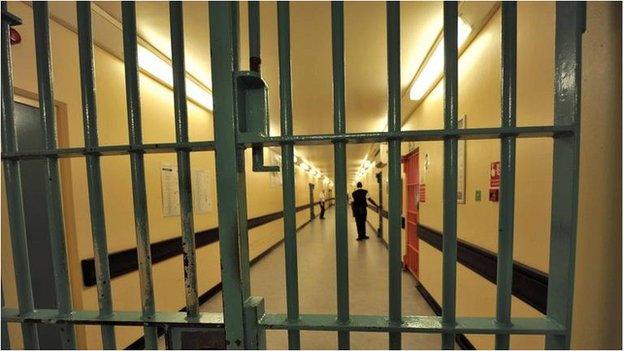
The performance of more than a fifth of prisons in England and Wales is "of concern", a government body has said.
Its annual ratings, external show 28 out of 126 jails, including the three opened under the coalition government, are "of concern" - the third of four ratings.
Only one - Brinsford Young Offenders Institution in Wolverhampton - got the lowest "of serious concern" rating.
Justice Secretary Chris Grayling said prisons "are still running safe and decent regimes".
But Glyn Travis, of the Prison Officers' Association, said the service was "in crisis".
Separate figures, external show the number of prisoners who died in custody in 2013-14 was 225 - up from 181 in the previous year and higher than in any of the previous nine years.
The figures in the report only go back to 2004-05, but the next-highest figure in that period was 211 in 2011-12.
Of the 2013-14 deaths, 88 were recorded as self-inflicted, 127 were from natural causes, three were homicides and seven were listed as "other".
Speaking about the number of deaths, justice minister Andrew Selous said the government was "working hard to understand the reasons for the recent increase".
"But this is a complex issue and there is no simple explanation, with the prison population containing a high proportion of very vulnerable individuals," he said.

Analysis
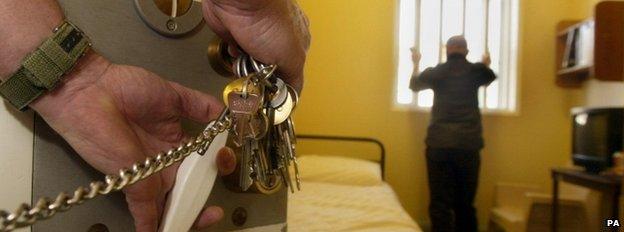
By Danny Shaw, BBC home affairs correspondent
In June, Nick Hardwick, the Chief Inspector of Prisons, told BBC News the demands on jails in England and Wales had "outstripped" resources, and warned there may be trouble ahead.
The raft of Ministry of Justice figures appears to back him up.
Prison deaths, incidents of self-harm, assaults and absconds are all up.
Michael Spurr, who's in overall charge, admitted the system was "under pressure" and said the prison population was "more violent" than it used to be.
Given that crime figures show overall levels of violence are on the decline that can only mean conditions and staffing levels within jails are making inmates act more violently.
Most worrying, perhaps, for governors and staff is that prison performance levels are dropping: a year ago there were concerns about 15 jails; now the number is 29.

The figures also show the number of assaults by prisoners on staff in jails in England and Wales has risen to its highest level for seven years, with almost 10 incidents every day.
There were also a record number of "serious" assaults - involving inmates and by prisoners on staff.
In the 12 months to the end of March 2014, there were 3,363 incidents in which prisoners attacked staff - up from 2,964 the year before.
There were 370 incidents involving serious assaults on staff, an increase of 101. The overall number of serious assaults was 1,699.
Both figures for serious assaults are unsurpassed, according to Ministry of Justice data going back to 2004-05.

Armed robber Michael Wheatley raided a building society while on the run from an open prison
The justice secretary said: "The increase in assaults is of concern. I do not tolerate violence of any kind in prison and every assault is treated extremely seriously.
"We have always had a complex and challenging prison population but we are now managing a more violent population - and we are taking steps to manage the increased levels of violence."
Other statistics found 225 inmates escaped or absconded from prisons in England and Wales in the last year.
This is an increase of 21 compared with the previous year and included 137 from open prisons.
It is still the third lowest number of abscondments since records were kept - and is down by more than 1,000 on the figure a decade ago.
Recent incidents include the case of Michael Wheatley, 55, known as the "Skull Cracker" who was jailed for life for carrying out an armed robbery while being on the run in May from an open prison in Kent.
Mr Grayling said open prisons helped prepare inmates for release, which was a "crucial" function.
But he said public confidence was important, so a review had been carried out and eligibility criteria had been "tightened".

Life behind bars
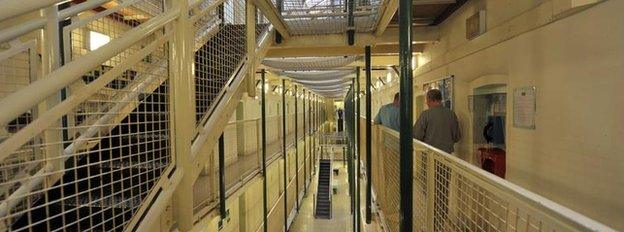
John "Ben" Gunn, who was released in 2012 after 32 years in jail for murdering a friend at the age of 14, now campaigns for prisoners' rights.
He said prison life was "largely non-violent" but some places have a "more violent culture".
"A bursting system with staff shortages and cut regimes has many effects," he said.
He said these effects could include more violence, adding: "Staff under pressure may resort to force more quickly. Prisoners react accordingly."
The latest figures reveal 88 "self-inflicted" deaths - the highest over the 10 years covered in the report - and Mr Gunn said this was the "real story".
The previous high was 87 in 2004-05, but the figure jumped from 52 in 2012-13 to 88 in 2013-14.
Mr Gunn said the problem was "multifaceted" but added: "Prison is horrible and many [inmates] are mentally ill. Overcrowding always means more stress."

The prisons opened under the current government - all three rated "of concern" - are Oakwood in the West Midlands and Thameside and Isis, both in south London.
Oakwood and Thameside both opened in spring 2012 and are privately operated. Isis, a publicly-run jail for adults and young offenders in south London, opened in July 2010.
The ratings come from the National Offender Management Service, which measures performance in four areas: public protection, reducing reoffending, decency and resource management and operational effectiveness.
Grading is in four bands - 4: exceptional performance, 3: meeting majority of targets, 2: overall performance is of concern, and 1: overall performance is of serious concern.
Shadow justice secretary Sadiq Khan said the data showed "the true scale of the growing crisis in the country's prisons".
"Violence is up, deaths in custody are up and the number of prisoners going on the run is up," he said.
"The government is trying to hide the sheer scale of the failings in the Ministry of Justice from the public by trying to pretend there's not a problem, let alone a crisis."
Mr Travis, of the Prison Officers' Association, said: "The prison population is increasing and despite changes introduced by the Ministry of Justice we still believe that inappropriate prisoners are being sent to open conditions as the service tries to manage its available cellular accommodation."
- Published31 July 2014
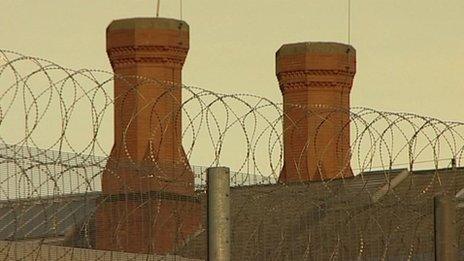
- Published29 May 2014

- Published16 December 2013
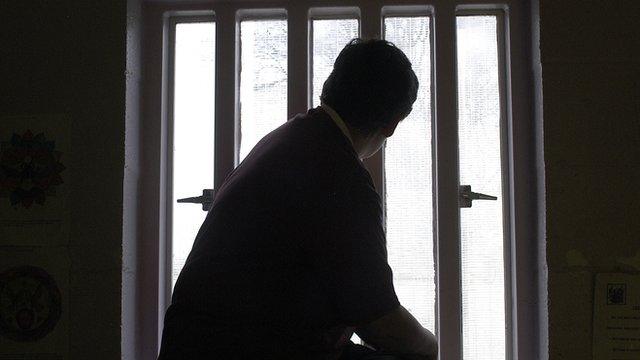
- Published8 October 2013
